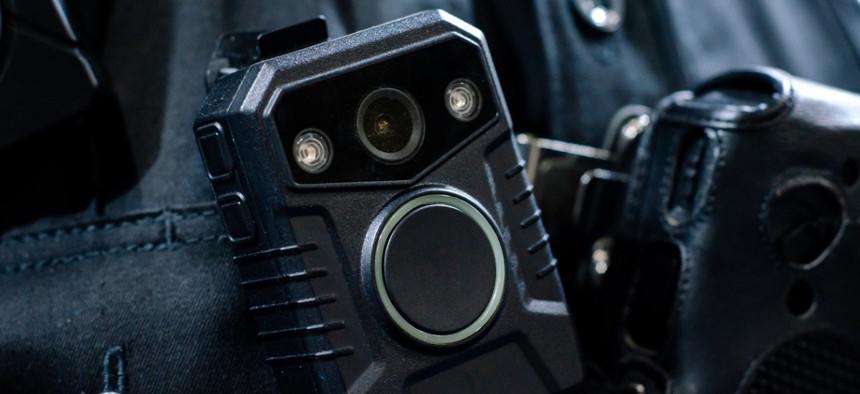DOJ Seeks Congressional Funding to Implement Policy on Body-Worn Cameras

artas/istockphoto.com
The announcement follows tensions with some local police departments over the authority to release footage recorded during joint operations.
Justice Department officials cited a commitment to transparency and accountability in declaring the desire to outfit all federal law enforcement agents with body-worn cameras, assuming Congress will pay for it.
“The department’s plans include a phased implementation of BWCs, and rely upon Congress to secure the necessary funding to equip agents nationwide with BWCs,” reads a press release Justice issued Sept.1.
Federal agents from the Bureau of Alcohol, Tobacco, Firearms and Explosives stationed in Phoenix and Detroit were the first to wear the cameras, on the day of the announcement, according to the release. The initial phase will see the FBI, Drug Enforcement Agency and U.S. Marshals Service implementing body worn camera programs over the next several weeks, it said.
“Keeping our communities safe is a top priority for the Justice Department,” said Attorney General Merrick Garland. “Law enforcement is at its most effective when there is accountability and trust between law enforcement and the community. That is why we have expanded our body worn camera program to our federal agents, to promote transparency and confidence, not only with the communities we serve and protect, but also among our state, local and Tribal law enforcement partners who work alongside our federal agents each day.”
The expansion builds on a pilot program Justice announced in the fall of 2019 that set policies around the use of body-worn cameras by local officers U.S. Marshals partner with on task forces used to serve warrants and conduct arrests. Some local law enforcement leaders reportedly withdrew participation from the task forces over the authority and terms for releasing footage where the use of force was involved.
Deputy Attorney General Lisa Monaco directed the ATF, DEA, FBI and Marshals Service to develop policies requiring agents to activate the cameras during pre-planned efforts to serve warrants and conduct arrests, including for state and local warrants, or to execute search and seizure orders. The policies should also presume that recordings involving serious bodily injury or death will be released “as soon as practical,” according to the release.
“The Department of Justice recognizes the importance of transparency and accountability in its law enforcement operations,” Monaco said. “Because there are circumstances where the use of force may occur during planned law enforcement operations, we are committed to the use of body-worn cameras by DOJ law enforcement agents in such circumstances. I am proud of the job performed by the department’s law enforcement agents, and I am confident that these policies will continue to engender the trust and confidence of the American people in the department’s work.”






